Ellen Reid’s latest opera “p r i s m” tackles a very serious and significant subject that is especially relevant today. It tells the story of an ill girl, Bibi, and her doting mother, Lumee, who live locked away from the world. The libretto, written by Roxie Perkins, also explores the elasticity of memory after trauma, and the lengths one will go to to “feel better.”
Soprano Anna Schubert, a musician based in Los Angeles, makes her LA Opera debut as Bibi in “p r i s m.” A native of Southern California, Schubert grew up in a musical family, and was “singing before [she] could talk,” as she says. While in the midst of rehearsals, Schubert sat down with LA Opera to answer questions about her musical upbringing, as well as to give her insight on this complex role.
Tell us a little about yourself and your musical background.
Well my dad was a pianist and he knew pretty early on in life that I wanted to sing. He told me that I was singing before I could talk. But I remember being in kindergarten and saying, “I’m going to be a singer when I grow up.” Of course, I went through phases of being interested in other things, as you do when you’re a kid. But I think I always knew that’s what I was going to do. As soon as I was old enough, I enrolled in my church choir, which is how so many singers get their start. Around the same time, my dad also had me take piano, because he’s a responsible musician parent. But I didn’t like the piano as much as I did singing. I wasn’t practicing the piano as much as I should, so my dad finally let me take voice lessons, which I really appreciated.
How did you get involved with the project?
Well, I worked with [“p r i s m” director] James Darrah last year when I did a production at Opera Omaha, and then I also recently worked with Ellen Reid when I performed one of her pieces for LA Master Chorale. “p r i s m” requires its singers to sing in a lot of different styles, and as a choral singer I’m trained to do so, as are a lot of the singers in LA Master Chorale. [Reid] has written the piece for singers who can do lots of different styles with their voices, such as “straight tone” [singing without vibrato] and more contemporary genres. Anyways, I was approached for this after I was heard singing for another gig. And that’s what I love about Los Angeles. There such a sense of community that really supports itself, like all the branches support each other. As a result, there’s just this really lovely blossoming network of musicians and artists and composers.
Describe Bibi in your own words.
Bibi is 20 years old but she’s stuck in the mindset of a 12-year-old. It isn’t immediately clear why, but we find out in Act II that she’s the victim of a major trauma. As a result, she and her mom have essentially been in “hiding” for the last eight years, in a room they refer to as “Sanctuary.” She’s very weighted down by all this baggage, but she doesn’t know where it comes from or why. All she knows is that her mom is there and her mom is her rescuer. They repeat this mantra of sorts that they’ve created about what happened before they got to Sanctuary. In Act I, Sanctuary is this safe, wonderful place and her mom, who she calls Lumee, is like her knight in shining armor. And then she has all these flashbacks in Act II. Everything becomes clearer to her and she realizes that her mom is actually like a captor. She was not only blinded to her mom’s behavior, but also by her lack of memory about what happened. And then on top of that, she’s carrying all this baggage. She has this internalized physical trauma that she doesn’t even know is trauma.
“p r i s m” sheds light on a lot of important issues that are trending today.
It’s a tough subject to tackle, because no one wants to wants to see someone experience something that traumatic. But you see Bibi remember and relive it. It is going to be triggering for some people because a lot of people have experienced what Bibi has. But at the same time, I think it’s really good and important to discuss.
I don’t want to use the word “brave” because it sounds patronizing, but I remember first reading the libretto and thinking it was really important to me, because “p r i s m” is written by, produced by and also stars women, and tackles these problems that women are unfortunately very familiar with. So it’s a privilege to portray this character, in the most respectful way possible.
Is there anything you’d like audiences to know before they see “p r i s m”?
Well, I love that new music, especially music by women, is getting shared through big companies like LA Opera, and that these new stories are being told to address subjects that are deemed taboo in a much more educational way right now.
“p r i s m” opens on Thursday, Nov. 29. Click here for more information or to purchase tickets.
Swipe for More

Anna Schubert as Bibi in the world premiere of "p r i s m" presented by LA Opera Off Grand.
Larry Ho / LA OperaSwipe for More

Rebecca Jo Loeb (standing) as Lumee with Anna Schubert (left) as Bibi in the world premiere of "p r i s m" presented by LA Opera Off Grand.
Larry Ho / LA OperaSwipe for More
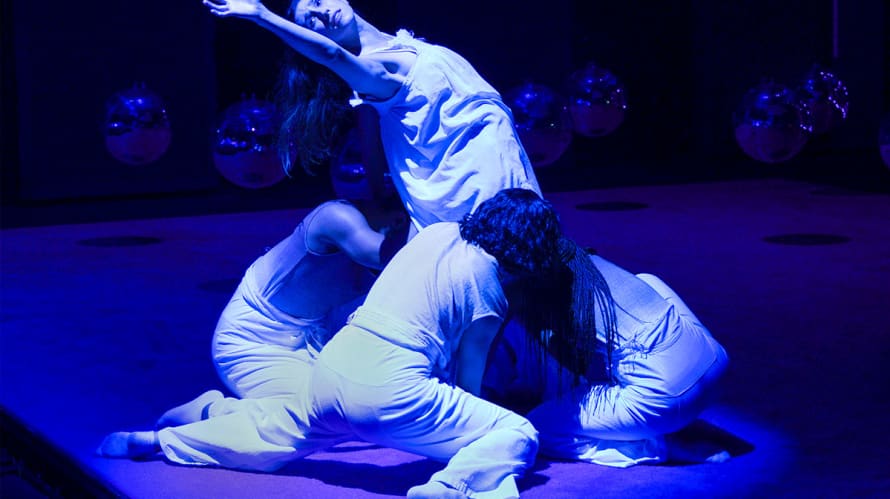
Anna Schubert as Bibi in the world premiere of "p r i s m" presented by LA Opera Off Grand.
Larry Ho / LA OperaSwipe for More
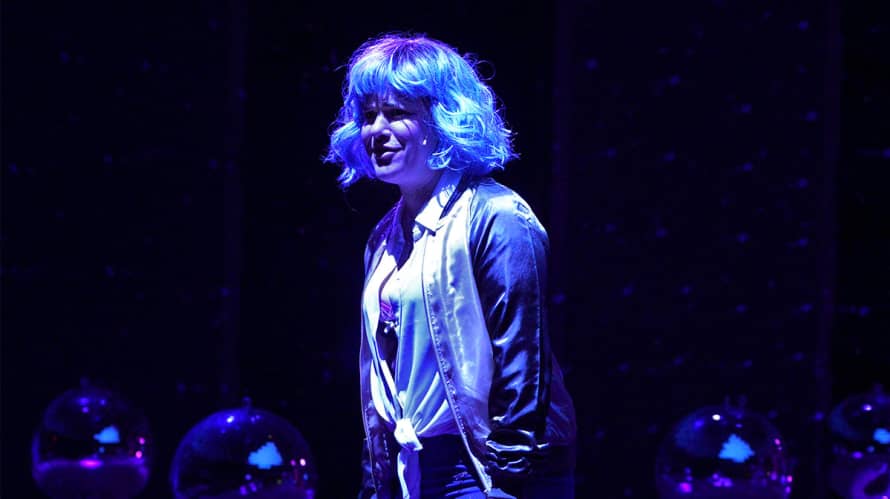
Rebecca Jo Loeb as Lumee in the world premiere of "p r i s m" presented by LA Opera Off Grand.
Larry Ho / LA OperaSwipe for More
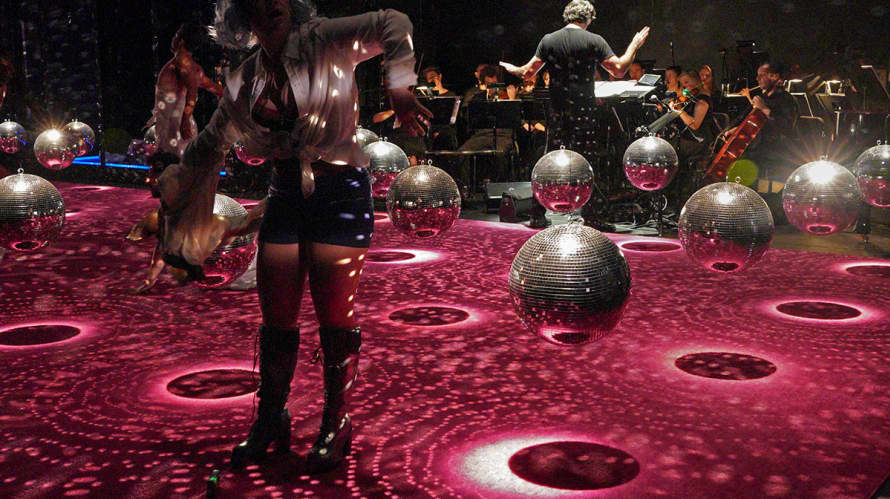
A scene from the world premiere of "p r i s m" presented by LA Opera Off Grand, with Rebecca Jo Loeb as Lumee, conducted by Julian Wachner.
Larry Ho / LA OperaSwipe for More
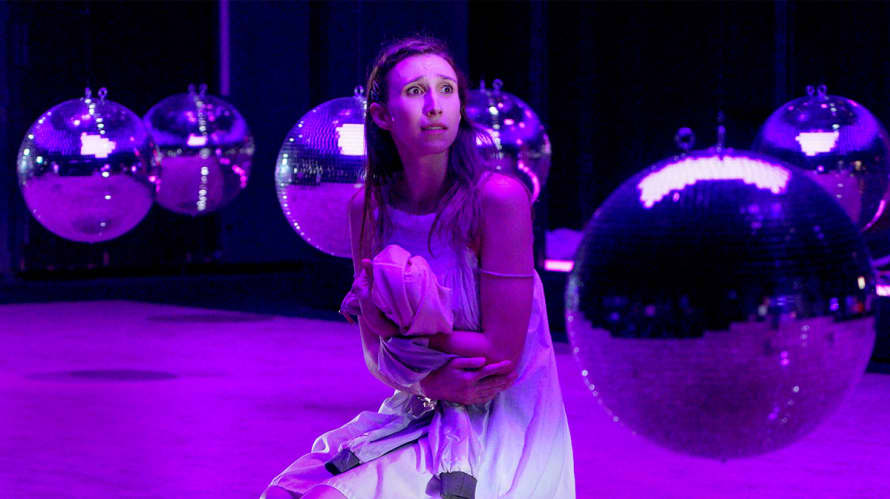
Anna Schubert as Bibi in the world premiere of "p r i s m" presented by LA Opera Off Grand.
Larry Ho / LA OperaSwipe for More

Ellen Reid, the composer of "p r i s m"
James Matthew Daniel


